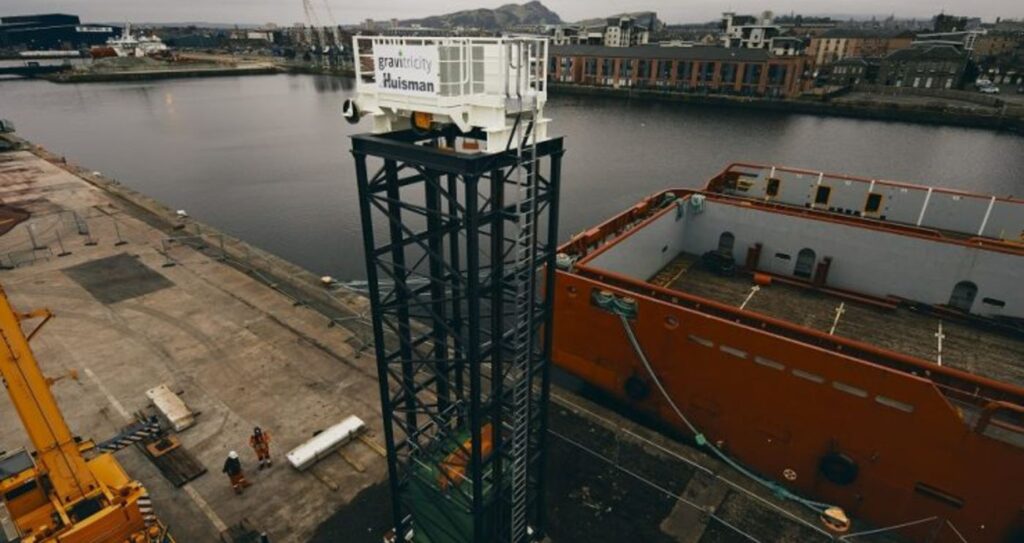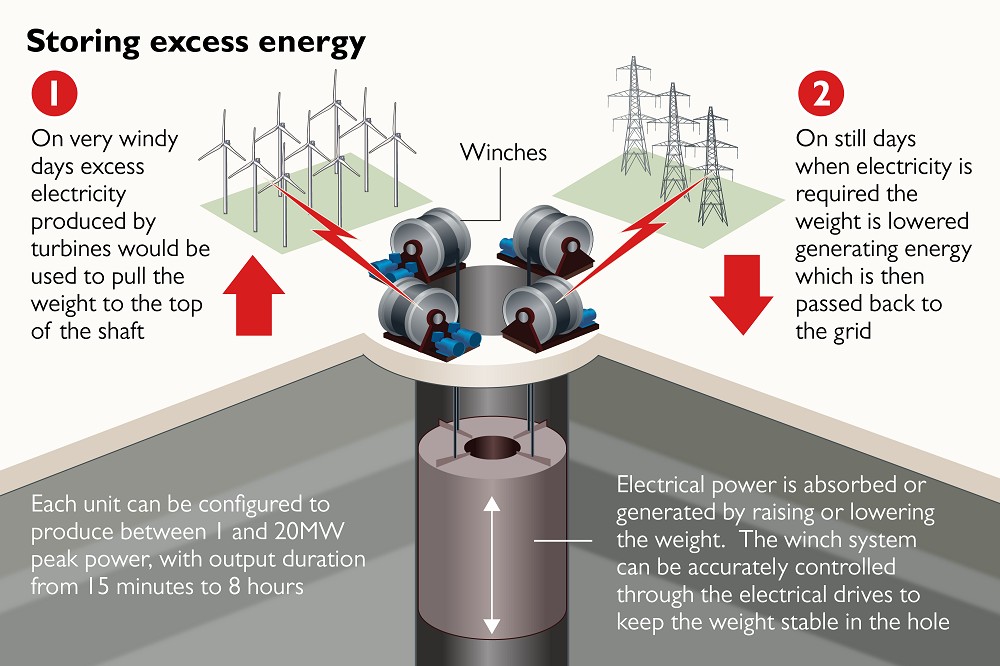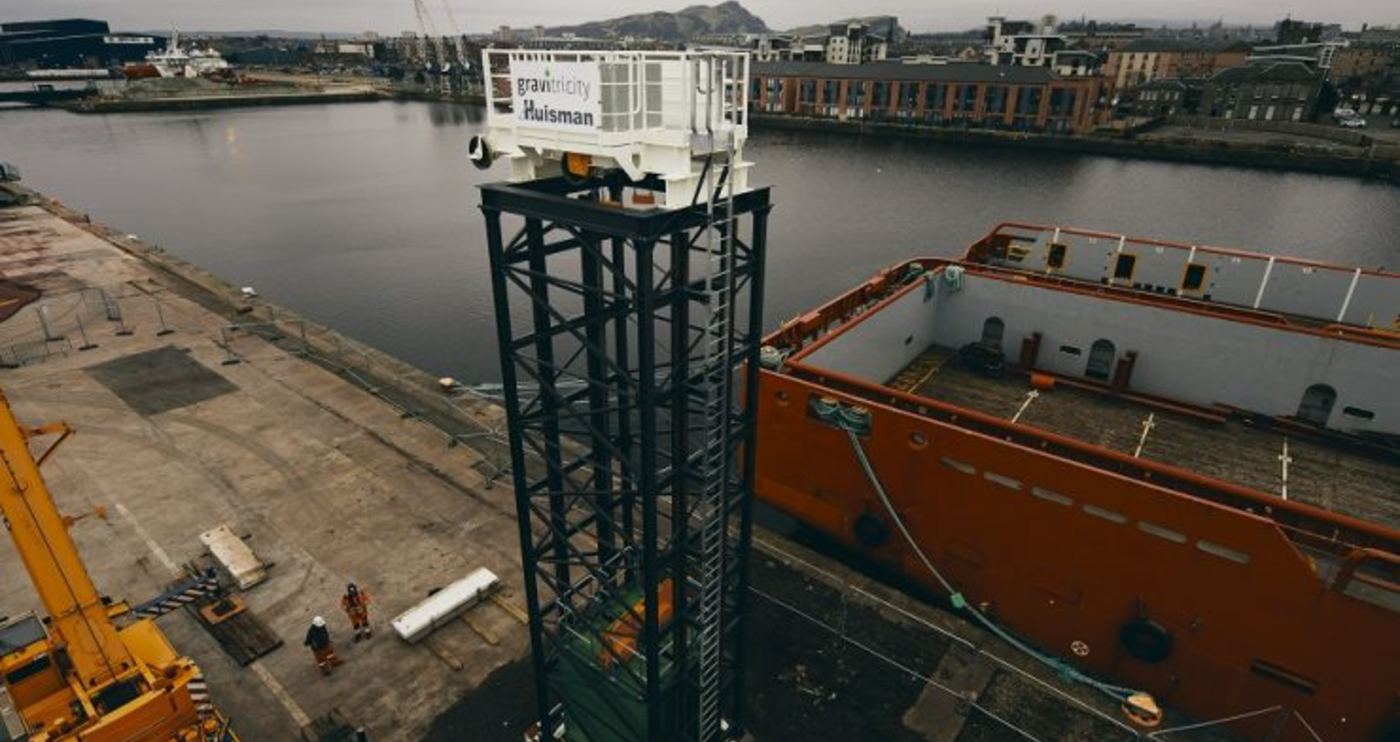
A company that uses gravity to create a ‘giant battery’ has just completed a successful test in Scotland, paving the way for its commercial-scale roll out.
The firm is called Gravitricity, and their device, which has a 25-year lifespan, could help prevent the mining of rare earth minerals in the creation of lithium-ion batteries, while providing a cost-effective alternative for renewable storage.
Costing £1 million ($1,385 million) to build a 15-meter (49-foot) tower with a 25-ton weight, Gravitricity say the prototype can generate 250 kilowatt hours, and deliver electricity in less than a second when demand occurs.
The device has been designed to go in old mine shafts rather than up in the air, and “These tests confirm our modeling and show that gravity energy storage is a serious contender in the global energy storage market,” said company managing director Charlie Blair.
The technology relies on sending excess power from renewables, such as wind power, into cable pulleys that slowly hoist a heavy weight up the tower, storing potential gravitational energy that is released back into the system as electricity when the weights are lowered.

The company is already in “advanced discussions” with mine owners in Britain, Scandinavia, Poland, and the Czech Republic over possible locations for initial European projects.
“If this technology is one that really makes a difference it’s going to make a difference globally, Blair told BBC Scotland. “It’s going to keep the lights on in Africa, as they build the grid, just as much as it will in Europe.”
MORE: Biodegradable Algae Solar Panels Clean The Air While Growing Green Energy
Global renewable storage markets are huge, being valued by Bloomberg at more than $600 billion. While releasing no emissions, renewable energies can’t store electricity they’ve generated, and ingenious methods for addressing this problem utilize all kinds of materials and strategies.
GNN reported last year on a pair of startups from Britain and Sweden that use the phase change of matter, i.e. going from a solid to a liquid to a gas, to store and then again to release energy, one which stores air in liquid form before converting it back to gas, the other using molten aluminum.
Other innovators are recycling batteries from EVs, and now Gravitricity utilizes potential gravitational energy.
While all these methods seem eclectic and disunified, they are exactly the kind of thing a dynamic and important market like renewables storage should be seeing.
RELATED: Aptera Solar-Powered Car With ‘1,000-Mile’ Range Gets 7,000 Preorders for Delivery in 2021
With each firm that succeeds and each firm that fails, the sector learns valuable lessons, speeding the process towards developing a Model-T-like breakthrough.
POWER This Exciting Innovation Over to Friends…




















